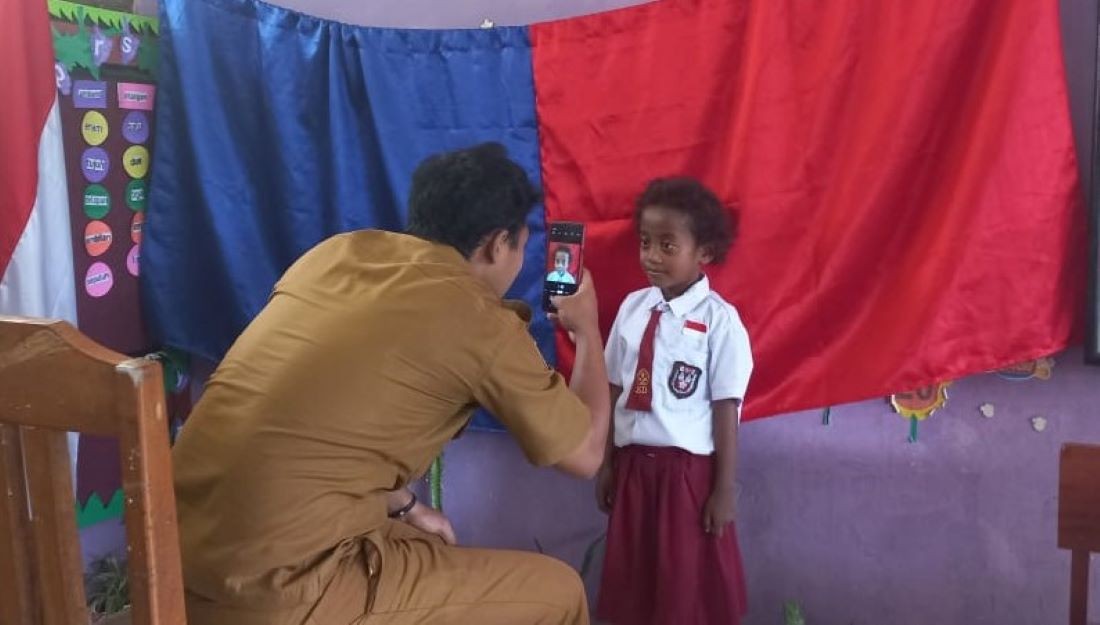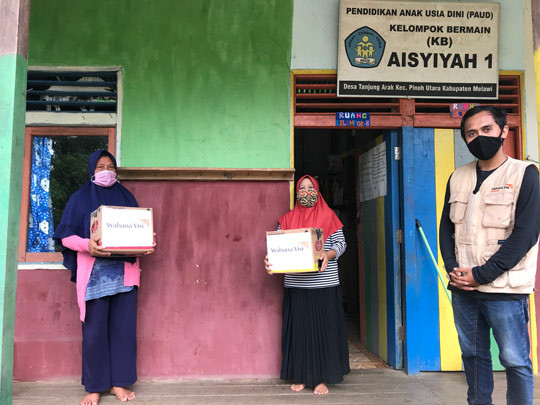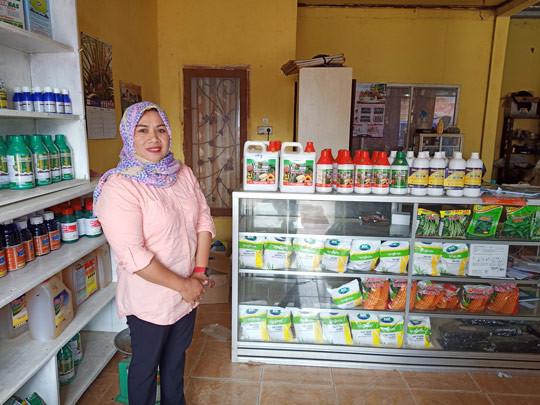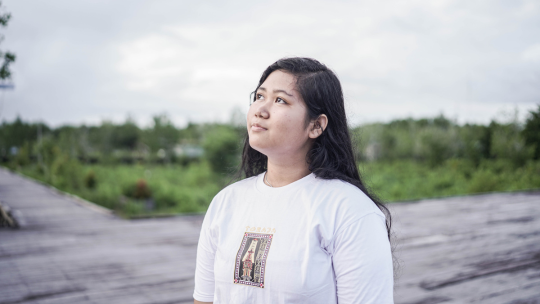PAPEDA Gives Access For Basic Rights

“I am so glad that right now my child can have a birth certificate. Apparently, birth certificate is so important for my child’s future. She can access her rights as a civilian later, using this legitimate document,”. - Debora Wersay, mother.
One day, Paula Nonce Suebu - the leader of one Early Childhood Development (ECD) Center at Jayapura sub-district – questioned herself. Why are there only 28 children’s names registered in the government educational data center? But in reality, every day, the ECD Center classrooms is always filled with more than 28 children. Why are there so many names that have not been registered to Indonesia’s educational data center? Then, she confirmed this issue with the sub-district education authorities. It turned out, the main issue of this unregistered names were the absence of birth certificate and other residence documents. Birth certificate is the required document for registering to the government educational data center.
Indonesia’s national government utilize the data center as a foundation for planning the national education program. If an education institution registers their student data, then they can access many programs or funds that the national’s offer. So, this data center is playing an important role for planning and developing the ECD Center where Suebu’s lead. If she can register every child’s name to the data center, then the ECD Center can provide better education. But this issue is rooted to other issue, which is the absence of required document: birth certificate.
In 2021, Indonesia’s statistic center made a survey that showed only 45.19% children in Papua Province who have birth certificate. Which means, more than 50% children still live without the access to basic civil rights and owning a birth certificate. Some of these 50% should be in Jayapura District, where Suebu’s ECD Center belong.
PAPEDA program implementation was started by the challenge Paula Suebu’s facing in her daily duty. Wahana Visi Indonesia, in collaboration with UNICEF, initiated this program to promote the integration of birth registration and ECD, ensuring every child is counted and have access to basic services. Local government in provincial and sub-districts, also the community was actively involved in this program. This program was implemented in three areas, those are the city of Jayapura, Jayapura sub-district, and Keerom sub-district. This program will ensure that all children and community in these areas can have birth certificate or other residence documents, and have access to other civil rights, for example being registered in the educational data center.
Herald J. Berhitu, chief of Civil Registration Authorities in Jayapura Sub-District, was attempting various innovations to ensure the community can easily own civil or residence documents. “These documents are the community’s right. I hope, community can easily access and own these important documents. Do not make them feel burden or troubled by the process and accessibility,” he said. Berhitu’s team was actively coordinating with other sub-district's authorities, especially with education authorities. His team also build a solid teamwork with village authorities, faith leaders, cadres, and Child Forum to arrange a civil registration process in the village. Through PAPEDA program, civil registration process become very close to where the community lives. They do not need to travel far to the Civil Registration Office.
A Sustainable PAPEDA
PAPEDA program also make other achievement that is developing and documenting an effective and efficient method for community – especially children in Papua Province – to access basic civil rights. This method is a result from series of cross-sectoral discussion and workshops. This method was made by assessing problems in community, then developing a plan to tackle accessibility issue in civil registration. It is the best method to be applied in Papua Province context.
One of the success keys of this program is the solid cross-sectoral collaboration. Whether it is interdepartmental within sub-district authorities, or between sub-district authorities and community stakeholders. All stakeholders share a role so the registration and production of residence documents can be established well.
Until September 2022, PAPEDA had trained 111 person – from different roles such as local government, community leaders, faith leaders, midwives, teachers, etc. - to implement the suitable method in registration and producing residences documents. Besides, there were more than 1.000 community members reached through awareness-raising activities on civil registration process.
“I hope, all parents and community, can register themselves to the Civil Registration Authorities. Because it is important and affect our future, the future of children in Indonesia,” said Devitari, child forum member from Keerom sub-district.
After almost one year of implementation, every best practices that PAPEDA program had achieved can be continued in the future. So, every child in Papua Province is counted and the community can have the access to other basic rights as a civilian who lives in Indonesia.



